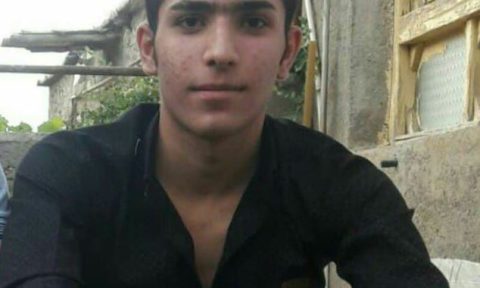Ashkan Zare: Life Lost Meaning After the Sudden Deaths of My Sister and Brother
According to reports from Iranian Kurdistan Human Rights Watch in Sanandaj, a common tactic used by the armed group PKK and its Iranian offshoot, PJAK, to recruit members is to exploit the emotional vulnerability and depression of young Kurdish Iranians. Numerous investigations, documents, and interviews by the Watch indicate that individuals with psychological, social, and familial issues are susceptible to recruitment by armed groups like the PKK and others. This recruitment can stem from several factors:
- Sense of Belonging: Individuals feeling isolated or lacking identity may seek a group to provide a sense of belonging. Armed groups often instill a sense of identity and purpose in their members.
- Escape from Problems: Some individuals may seek to escape their life’s realities due to family or social problems. Joining an armed group can be seen as an escape route.
- Sense of Power: For those feeling weak or frustrated, membership in an armed group can provide a sense of power and control.
- Social Background: Individuals raised in families with a history of political or military activity may naturally gravitate towards such groups.
- Access to Support: For some, armed groups can serve as a source of emotional and social support, especially when facing personal hardships.
Ashkan Zare, born on October 12, 1988, in Sanandaj, became severely depressed following the deaths of his sister and brother on July 29, 2018. He stated that life lost all meaning for him, and he lacked the will to live, yet also lacked the resolve for suicide. In this vulnerable state, Ashkan met Ramin Zendnia (currently a refugee in Germany). This individual exploited Mr. Zare’s emotional state, claiming that life within the PKK terrorist group offered a supportive environment for emotional healing and a place to vent anger. Mr. Zare, seeking escape from his grief and depression, was deceived and joined the PKK. Ashkan Zare remained with the PKK until September 5, 2024, spending approximately six years primarily engaged in tunnel construction in the Qandil region. He testified that the living conditions and amenities in PKK camps were vastly different from what Ramin Zendnia had described. The discrimination between Iranian and Turkish Kurds, the forced servitude of new recruits to commanders, and the prevalence of illicit sexual relationships (despite being officially prohibited) were among the deep-seated abnormalities that led Ashkan to seek escape from the PKK. After witnessing these atrocities, Mr. Zare decided to flee and return to Iran.
Question: Mr. Zare, what factors led you to leave the country and join armed groups? Were you aware of their true nature before you left?
Ashkan Zare: After the sudden deaths of my sister and brother, life lost all meaning. I felt I had no reason to live and even contemplated suicide, but lacked the courage. It was during this critical time that I met Ramin Zendnia. His words painted a picture of Iraqi Kurdistan as a place of emotional solace and a means to release my pent-up anger. He spoke of incredible opportunities and promised a peaceful life. Regarding my prior knowledge of the PKK and other armed groups, I was completely ignorant of their identity and objectives. My sole desire was to escape my current circumstances. My family environment did not aid in my grieving process. Therefore, I went to the region. Ramin had led me to believe that I could find peace away from life’s pressures. However, upon arriving in the Qandil region, the reality was starkly different. My belongings were confiscated upon arrival, and I was taken to a remote location with no external communication. There was no trace of the promised peace and emotional healing; instead, I faced hardship and grueling labor.
Question: What were your living conditions like in the Qandil region?
Ashkan Zare: Contrary to Ramin’s promises, life there was extremely harsh and arduous. I was immediately assigned to tunnel construction, a physically demanding task with no support. There was blatant discrimination between Iranian and Turkish Kurdish members. Commanders forced Iranian Kurds to perform personal tasks, and any protest was met with severe repercussions. We were often denied adequate food and clothing, and forced to live in harsh mountainous conditions. The winters were bitterly cold, and many fell ill due to the cold and lack of resources. We lacked even basic amenities. We lived in remote mountainous areas with limited access to essential services like water, electricity, and sanitation. Discrimination, oppression, and social pressures were rampant within the PKK. The group’s environment was highly militarized, and members underwent rigorous military training, causing immense physical and psychological strain.
Question: Were there other incidents that prompted your decision to flee?
Ashkan Zare: Yes, I witnessed things that were hard to believe. There were relationships that contradicted the group’s own rules. For instance, sexual relations were officially prohibited, but commanders abused their power. Many vulnerable new recruits were exploited. These contradictions and pressures led me to consider escape. I could no longer tolerate the injustice and emotional strain. There was no justice, no adequate resources, no adherence to their own slogans, and no peace or comfort. I endured years of physically demanding tunnel construction!
Question: How did you manage to escape?
Ashkan Zare: I decided to escape at the first opportunity. One night, during my guard duty, I used the darkness to slip out of the base. After several days of walking through the mountains, I reached the Iranian border and surrendered to border forces. The journey was perilous, and I could have been captured by the group or human traffickers at any moment. I was fortunate to survive both the journey and my time with the group. Many PKK members were killed in Turkish bombings.
Question: How were you treated upon your return to Iran?
Ashkan Zare: Contrary to my expectations, the behavior of the law enforcement and judicial authorities was entirely lawful and humane. The Sanandaj Revolutionary Court sentenced me to six months in prison, but after serving 35 days, and with the judge’s approval, I was released on parole with an electronic ankle bracelet. My detention conditions were favorable, and I experienced no mistreatment. Some prison officials even tried to help me reintegrate into normal life. This contrasted sharply with the PKK’s lies that I would face torture and execution upon returning to Iran.
Question: How do you feel today, looking back?
Ashkan Zare: The experience was incredibly difficult but also a significant lesson. Today, I understand the importance of careful consideration during life’s crises and not being swayed by others’ words. Even if they offered me A million a month, I would never return there. If I could turn back time, I would make different decisions. I only desire a simple, peaceful life and to stand on my own feet again. Currently, I am working hard to build a better future and leave the past behind. I am grateful to have returned to Iran alive from the hellish PKK camps.










